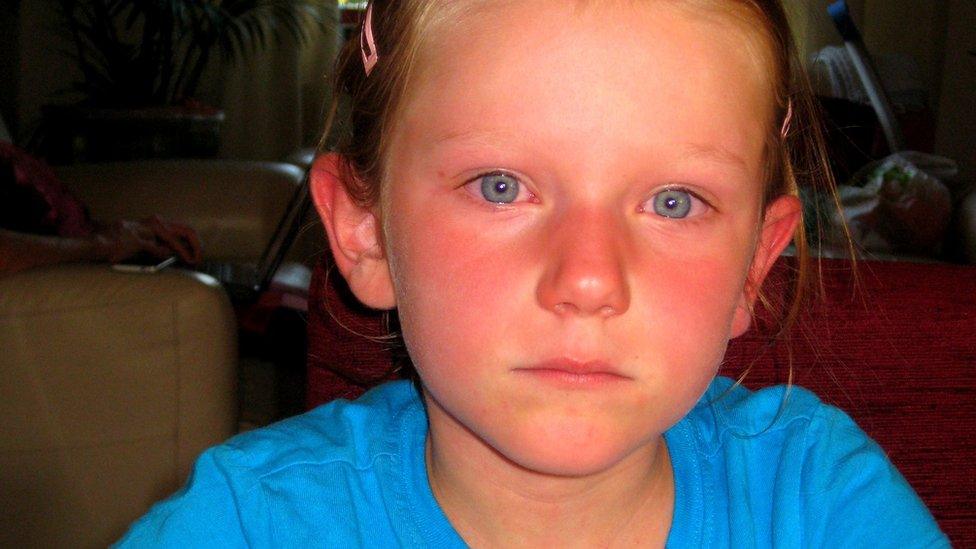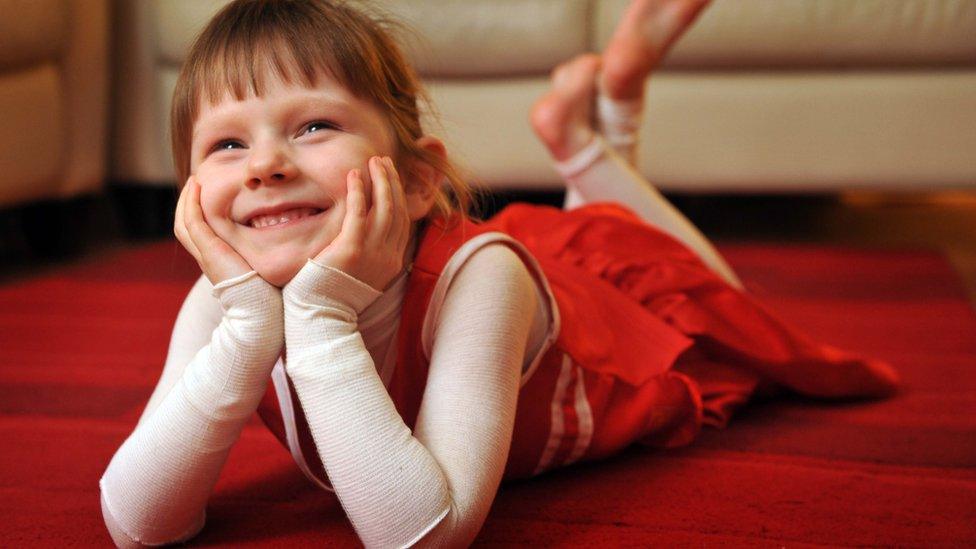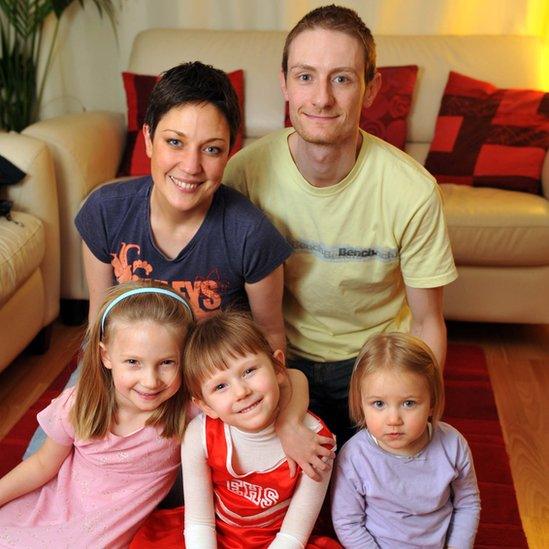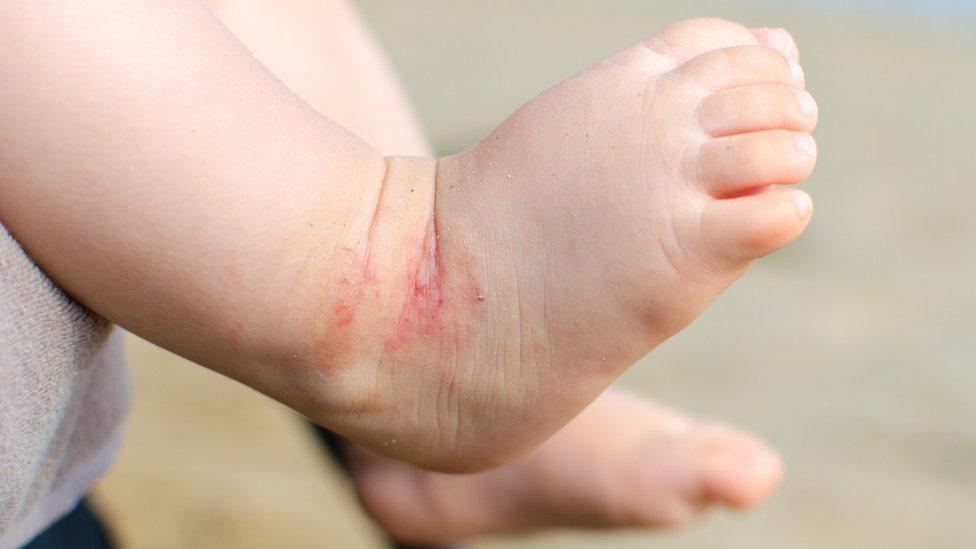'She was bandaged from head to toe with eczema'
- Published

Gaelle struggled at school because of her eczema, which spread all over her body
"Her eczema was so bad she had to be bandaged from head to toe."
Magali Redding runs the charity Eczema Outreach Support, which she set up after spending years battling her daughter Gaelle's eczema.
"My daughter was diagnosed with eczema at two months old. It started on her cheeks as a baby, and then spread all over her body," she says.
"She was so itchy that so she would scratch all night. And then in the morning, there would be blood all over the sheets."
Eczema is a dry skin condition that affects one in five children and one in 12 adults in the UK.
In mild cases, it can make the skin dry, red and itchy.
In more serious cases, it can cause weeping, crusting and bleeding.
Magali went to her GP for help and was initially prescribed a mixture of emollient creams, including bath additives.
Yet a new trial, published in the BMJ, suggests these bath oils offer "no evidence of clinical benefit" when they are used in addition to other treatments for the condition.
'Useful creams'
"It's difficult to know actually whether these bath additives were effective as we used them alongside other emollient creams," Magali says.
"But many of our members have told me that they found them very useful. And for some it was the only treatment they used.
"While I welcome new studies, I think it's very important to preserve patient choice as treating eczema is so complex and what works is different for everyone."

Gaelle often wore bandages from head to toe
In Gaelle's case, however, despite using a mixture of emollient creams, she continued to struggle to sleep at night and developed persistent skin infections.
Eventually, after about six months, she was referred to a specialist, who immediately prescribed her a strong hydrocortisone.
"Generally GPs tend to be shy about prescribing strong steroids, but actually best practice is to tackle the flare head on with a steroid, clear it up and then do your best to maintain the skin and avoid triggers," Magali says.
"Understanding this as a parent took some time.
"We know that eczema is caused by a combination of your genes, your immune system and the environment and they interact differently for everyone.
"Many of our members wait a long time before being referred to a specialist."
'Refused to hold her hand'
Magali also found a lack of psychological support, which was why she eventually set up the charity Eczema Outreach Support to bring sufferers together.
"Gaelle struggled at school because of her eczema. She would say to me, 'Mum, why am I the only scratchy girl in the class?'

Magali set up the charity after her daughter developed eczema as a baby
"And she told me that friends refused to hold her hand because they thought they would catch it.
"That broke my heart. Studies show that children with this condition are more likely to be bullied at school and to suffer from self-esteem issues and depression."
Gaelle's condition began to improve at six, and now aged 12 she no longer has eczema.
"That does often happen," Magali says. "Something in the children's immune system settles down and the condition goes away.
"Yet we struggled for years. I think it is very important that all options are available to parents."
- Published3 May 2018
